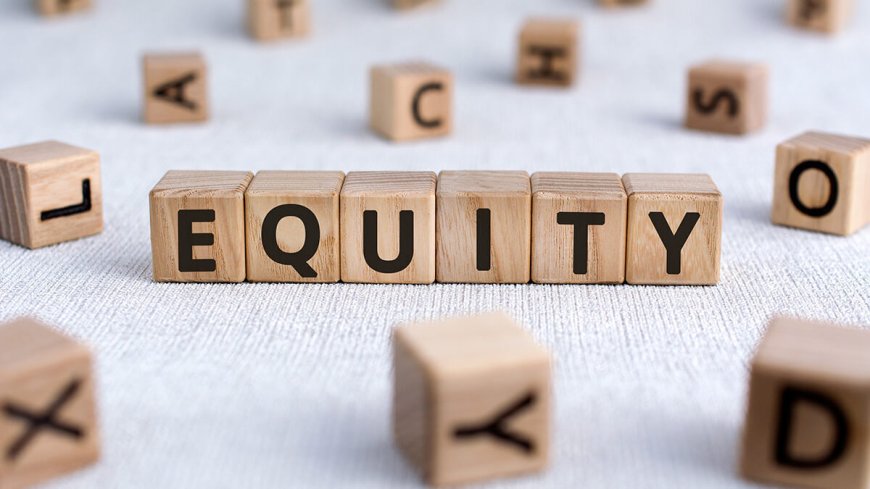INTRODUCTION TO EQUITY FOR KIDS AND ADULTS

EQUITY :
Equity is like a share or ownership in something. Equity is important because it allows people to invest in businesses and have a stake in their success. As a shareholder or owner, you can benefit if the company does well and its value grows. You might receive a portion of the company's profits as dividends, or if the company's value increases, you can sell your shares for a higher price than what you paid for them. Here when compay sell shares to raise capital.
FORMULA:
Equity = Assets - Liabilities
Assets are things you own that have value, like money, toys, or a house.
Liabilities are things you owe to others, like money you borrowed or promises to pay back.
The formula for equity is like finding out how much you really own. You take what you have and subtract what you owe to see how much is left. It helps you understand your net worth or how much you truly own by comparing what you have to what you owe.
EXAMPLE: (For Kids)
1) Shares in a Company:
Equity: Owning shares in a company, like a popular Indian toy store.
Explanation: When you buy shares in a company, you become a part-owner of that company. Each share you own represents your equity or ownership in the company. If the company does well and makes profits, the value of your equity may increase.
2) Mutual Funds:
Equity: Being a part-owner of a mutual fund, which is a collection of money from many investors.
Explanation: When you invest in a mutual fund, you become a part-owner of that fund. Your ownership is like equity. The value of your equity in the mutual fund depends on how the investments made by the fund perform. If the investments do well, the value of your equity may increase.
3) Piggy Bank Equity:
Imagine you have a piggy bank where you save your money. The money you put inside is like equity. It's the value or ownership you have in your piggy bank. As you save more money, the equity in your piggy bank grows, and you can see how much you own by counting the coins and notes inside.
4) Savings Account Equity:
Consider having a savings account at a bank. The money you deposit in your savings account is your equity in the bank. It's like owning a small piece of the bank. The more money you save in your account, the more equity you have in the bank, and the bank may even pay you some interest as a reward for keeping your money there.
5) Gold or Silver Jewellery:
Imagine you have gold or silver jewellery, like a necklace or bracelet. The jewellery you own represents your equity in precious metals. The value of the jewellery determines your equity. In India, gold and silver are considered valuable assets, and owning jewellery is a way to hold equity in these precious metals.
EXAMPLE: (For Adults)
1) Home Ownership:
Equity: The value of the house that you truly own.
Explanation: When you buy a house, your equity increases as you make payments towards the house. It's like the portion of the house that you fully own. It's the difference between the value of your house and the amount you still owe on your mortgage. As you pay off your mortgage, your equity in the house grows, and you become the full owner of the property.
2) Stock Market Investment:
Equity: Owning a part of a company by purchasing its stocks.
Explanation: When you invest in stocks, you become a shareholder or part-owner of a company. The number of stocks you own represents your equity or ownership in the company. If the company performs well and its value increases, the value of your equity also grows. But if the company doesn't do well, the value of your equity may decrease. So, equity in stocks is like having ownership in a company and sharing in its success or failure.
3) Retirement Savings:
Equity: Building savings and assets for your future through retirement accounts.
Explanation: When you contribute to retirement accounts like EPF or NPS, you are building equity for your future. The money you save grows over time through investments, and it represents your equity in your retirement funds. This equity ensures that you have savings and assets to rely on when you retire, providing financial security and stability for your post-work life.
In each example, equity represents ownership or value in something financial. It's about understanding how you own a part of something or have a claim on its value. Whether it's the value you own in your home, the ownership you have in a company through stocks, or the equity you build in your retirement funds, understanding equity helps adults make informed financial decisions and plan for their future in the Indian context.
CONCLUSION :
Equity in financial terms means owning a share or part of something valuable. It's like having your fair share of a special toy or treat. Whether it's owning a house, having stocks in a company, or saving for retirement, equity gives you ownership and a claim on the value. Understanding equity helps you make smart financial decisions and plan for a brighter future.
What's Your Reaction?
 Like
0
Like
0
 Dislike
0
Dislike
0
 Love
0
Love
0
 Funny
0
Funny
0
 Angry
0
Angry
0
 Sad
0
Sad
0
 Wow
0
Wow
0









































































